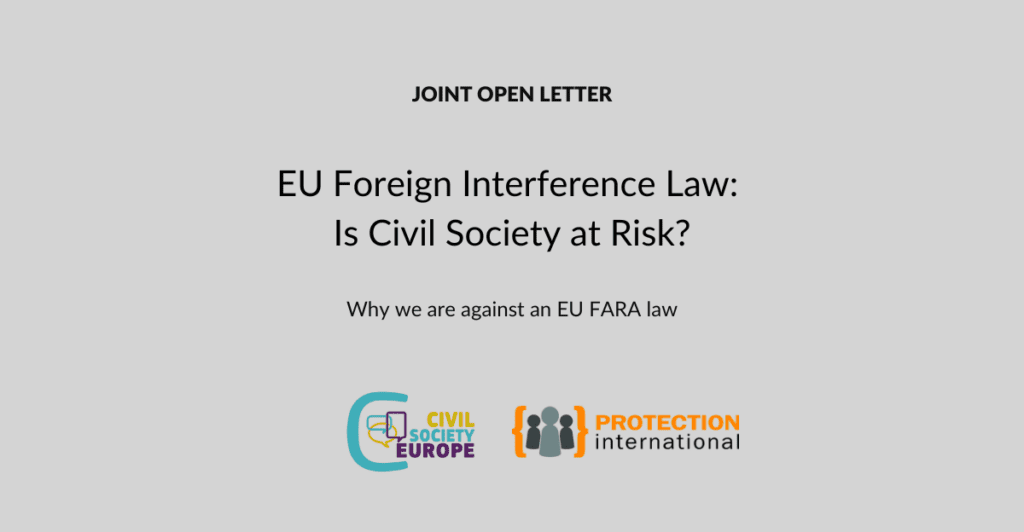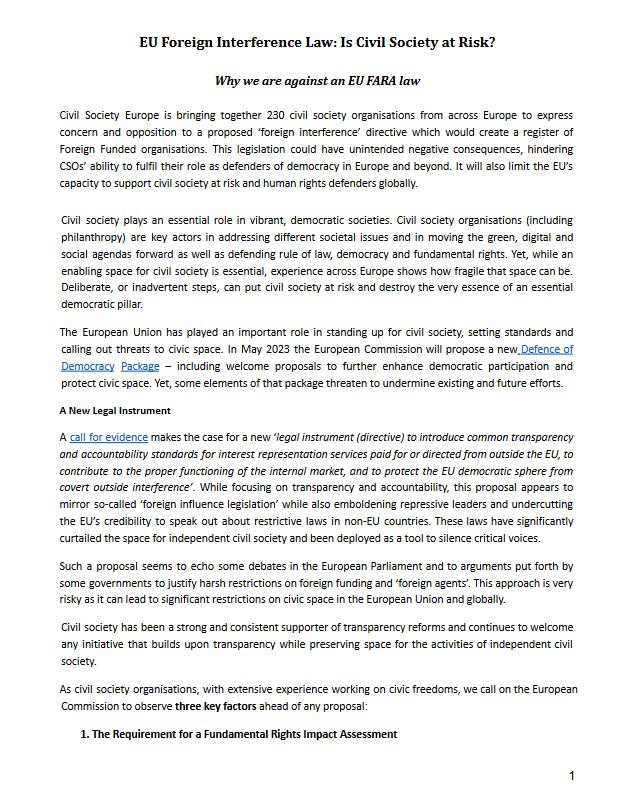Protection International is joining Civil Society Europe and other 230 civil society organisations (CSO) from across Europe to express concern and opposition to a proposed EU Foreign Interference Law which would create a register of Foreign Funded organisations. This legislation could have unintended negative consequences, hindering CSOs’ ability to fulfill their role as defenders of democracy in Europe and beyond. It will also limit the EU’s capacity to support civil society at risk and human rights defenders globally.
Civil society organisations have a key role to play in vibrant democracies, and are essential to address challenges currently facing our society such as a just transition, defence of rule of law and protection of fundamental rights. While civil society is central to confronting these challenges, experiences across Europe demonstrate that their place in society can be precarious, and the European Union has historically been a defender of civil society and civic space.
The European Commission’s upcoming Defence of Democracy Package contains some welcome initiatives to enhance democratic participation and civic space, but the proposed ‘foreign interference’ directive has raised concerns among civil society across Europe.
The proposed directive would introduce ‘transparency and accountability standards’ for civil society organisations, requiring them to disclose funding from outside the EU and creating a register of organisations that receive such funding. This proposal echoes other proposed ‘foreign influence legislation’ that can have negative consequences, such as narrowing space for civil society to perform its functions and silencing of critical voices. Furthermore, this directive is similar to legislation that the EU has itself opposed in the past, undermining the EU’s credibility to speak out against the use of such legislation to suppress civil society in non-EU countries or even to support civil society organizations working on human rights and democracy globally.
Freedom of association is key to people’s right to defend human rights. European Commission’s proposal for a directive on covert foreign interference risks curtailing this freedom.
Civil society is a strong supporter of enhanced transparency and accountability while preserving space for independent civil society to carry out its activities. As such, civil society organisations call on the Commission to consider three factors ahead of any proposed legislation: (1) the requirement for a fundamental rights impact assessment, (2) clarity and purpose of such a directive, and (3) the EU’s fundamental rights obligations.



 English
English